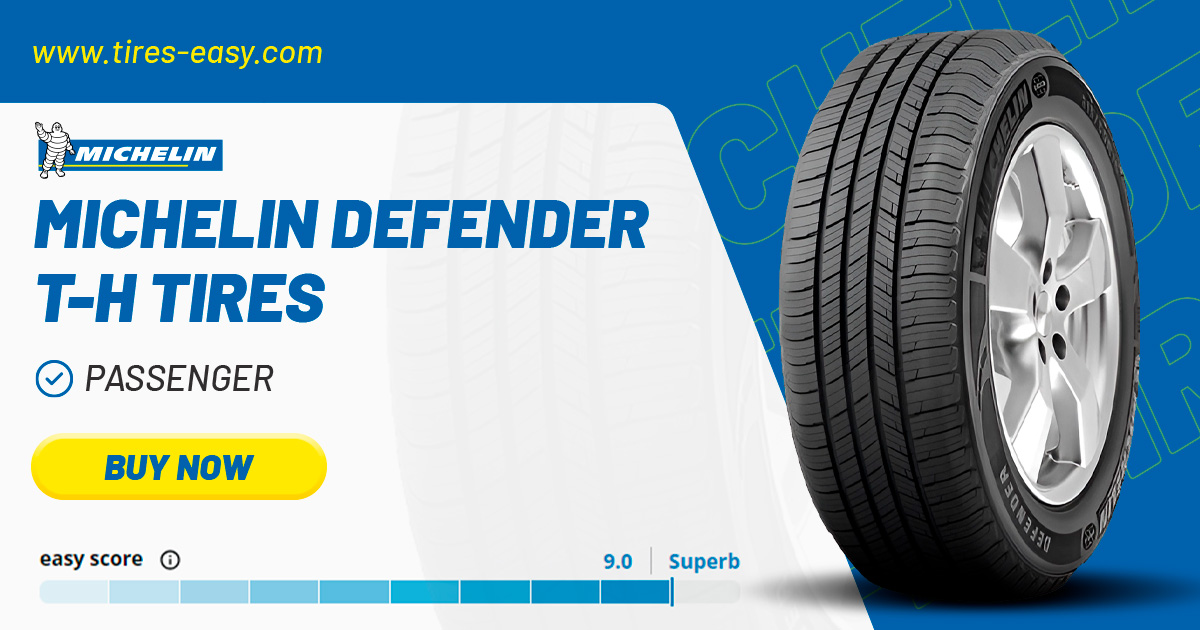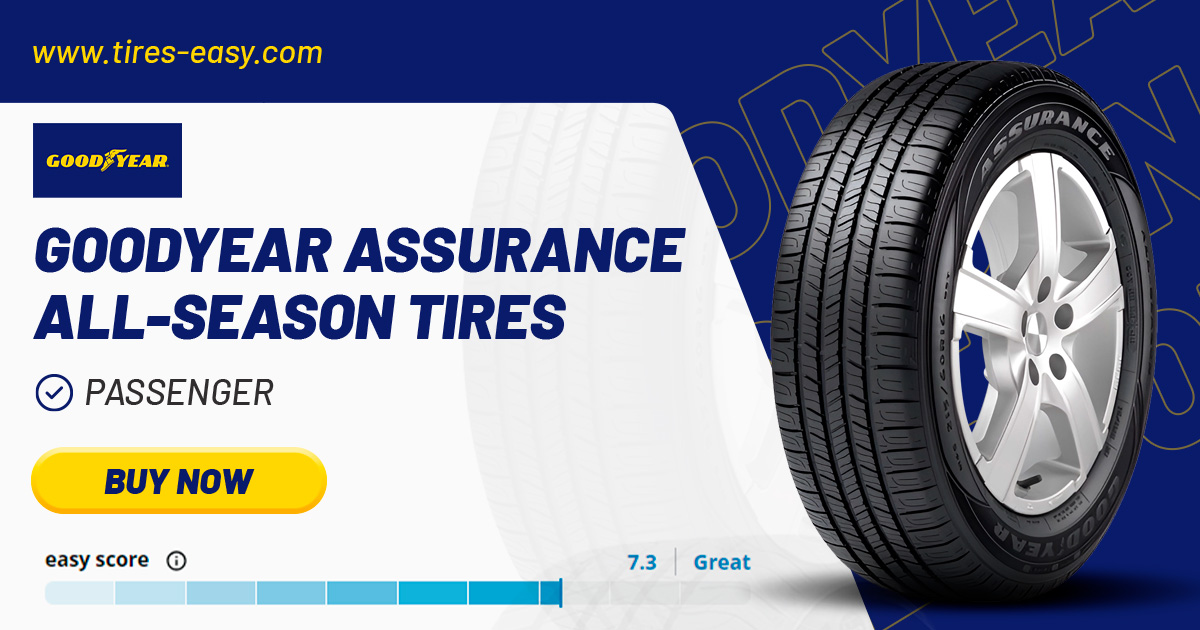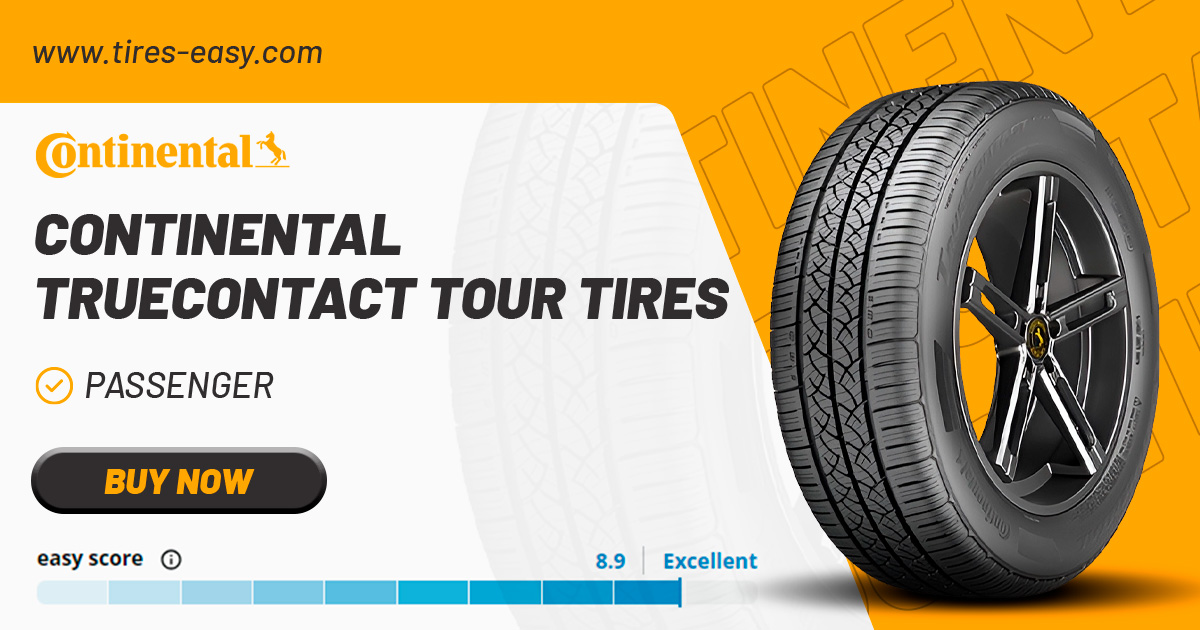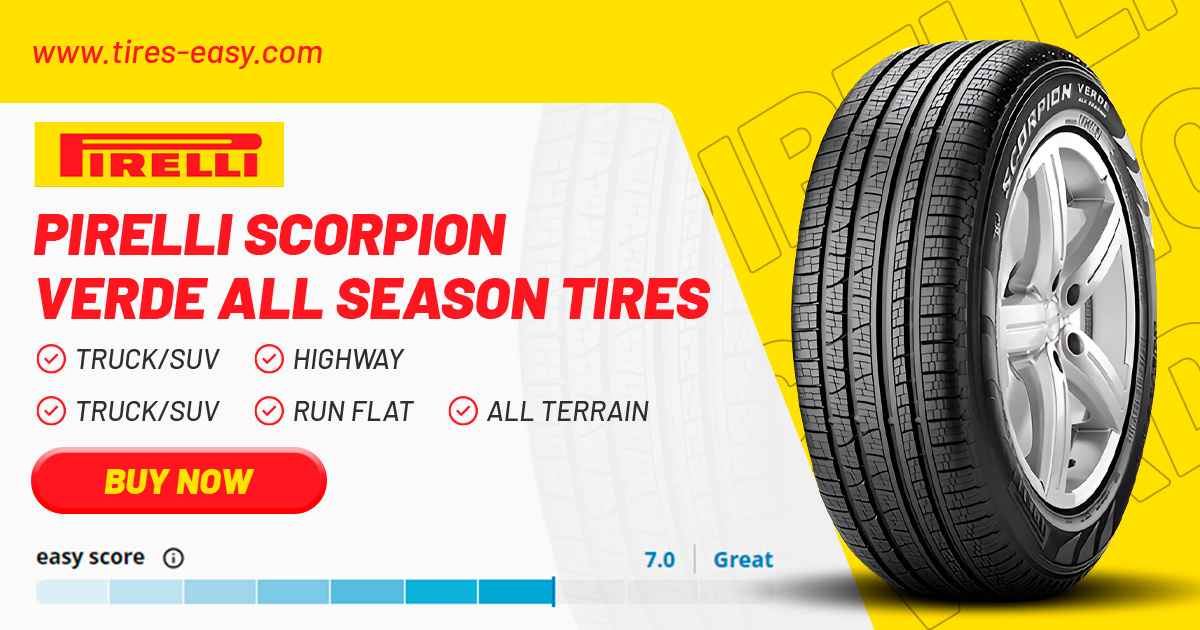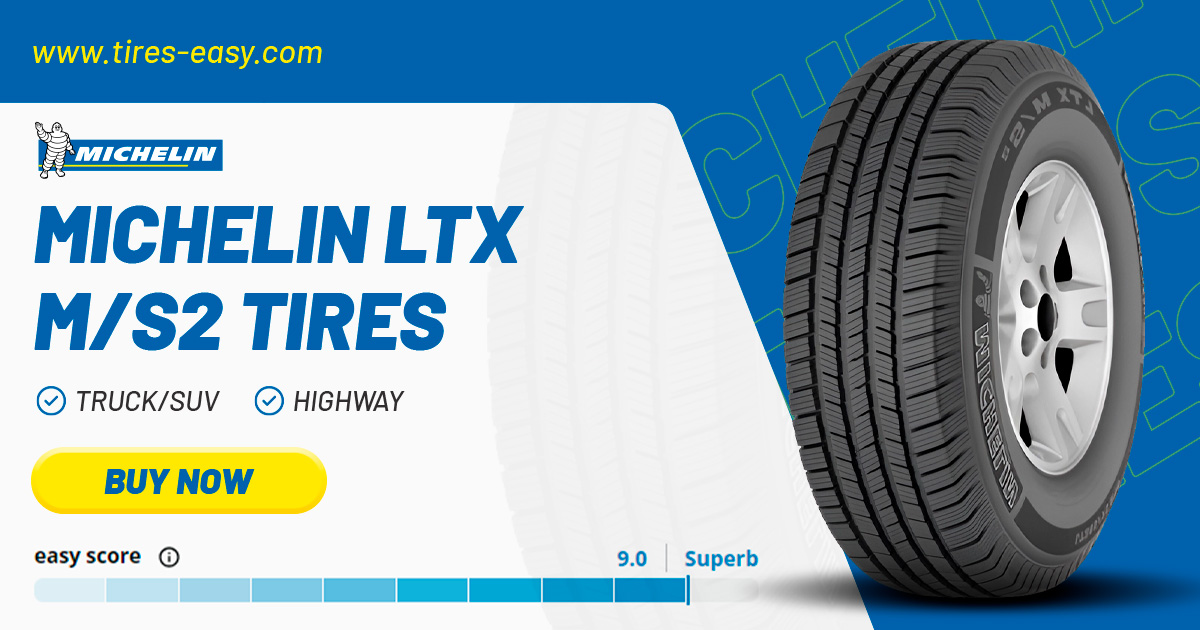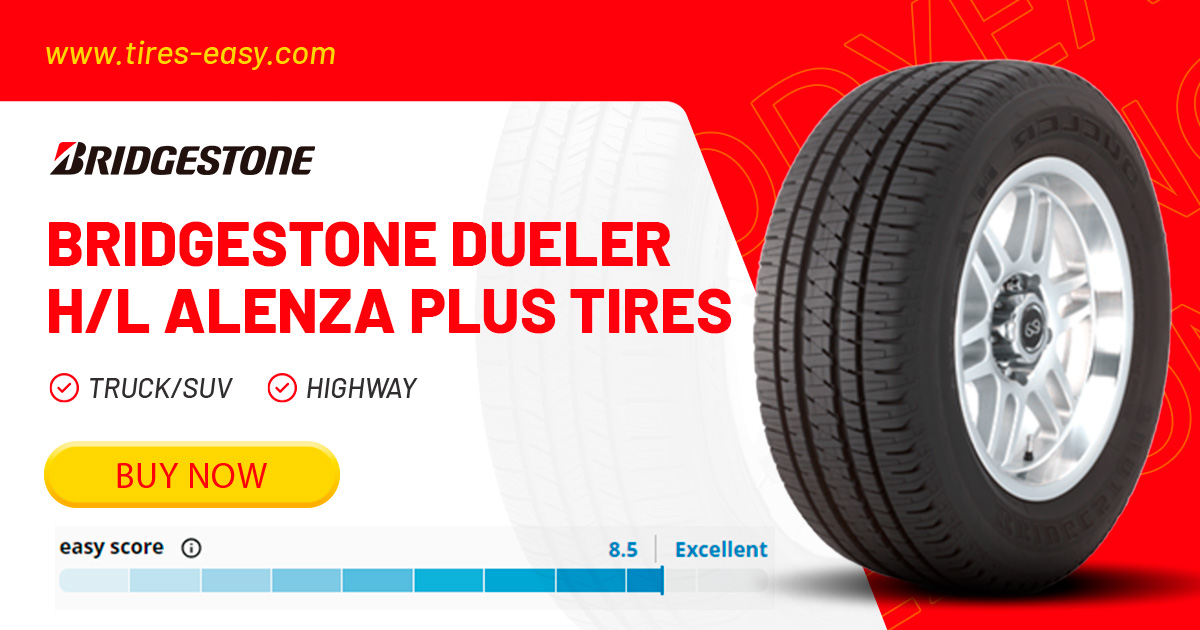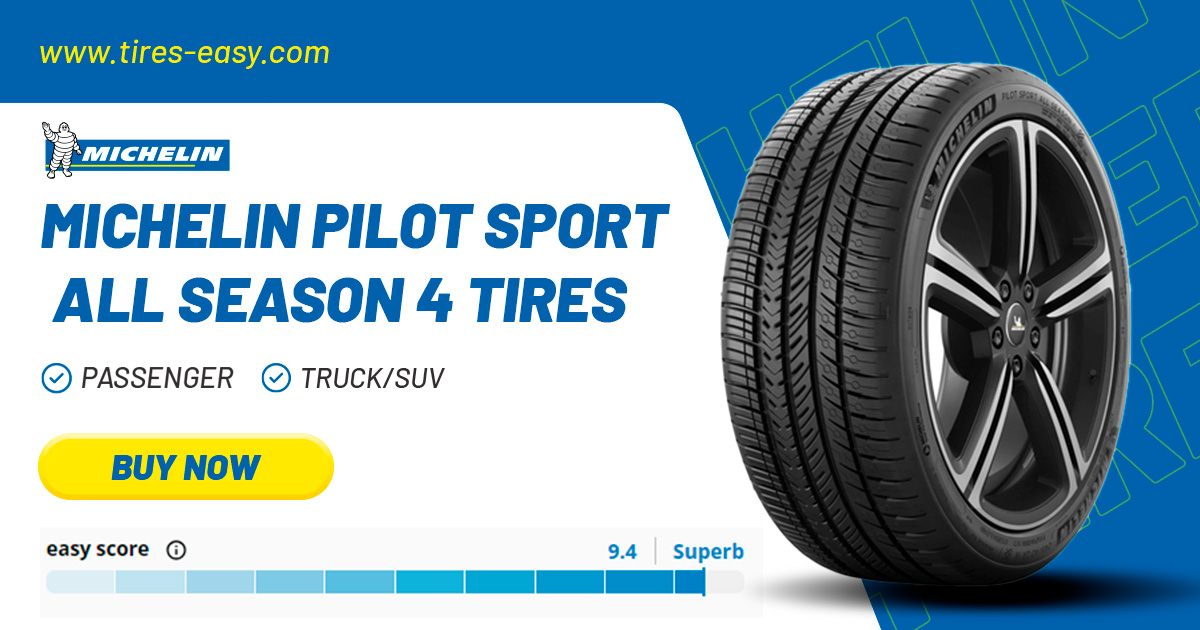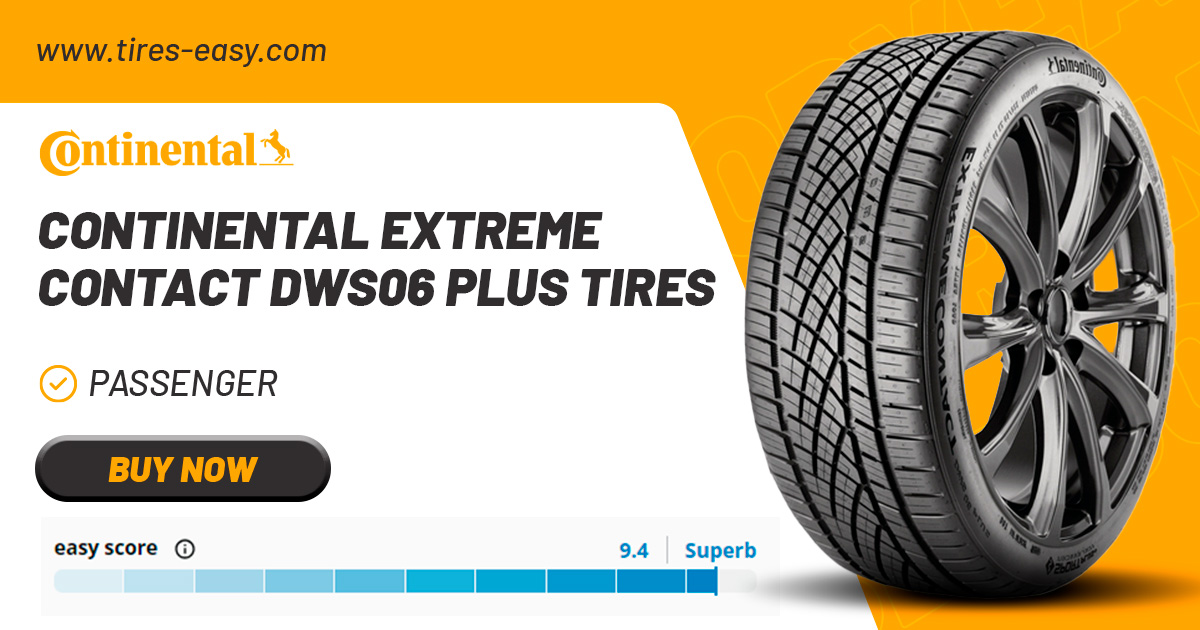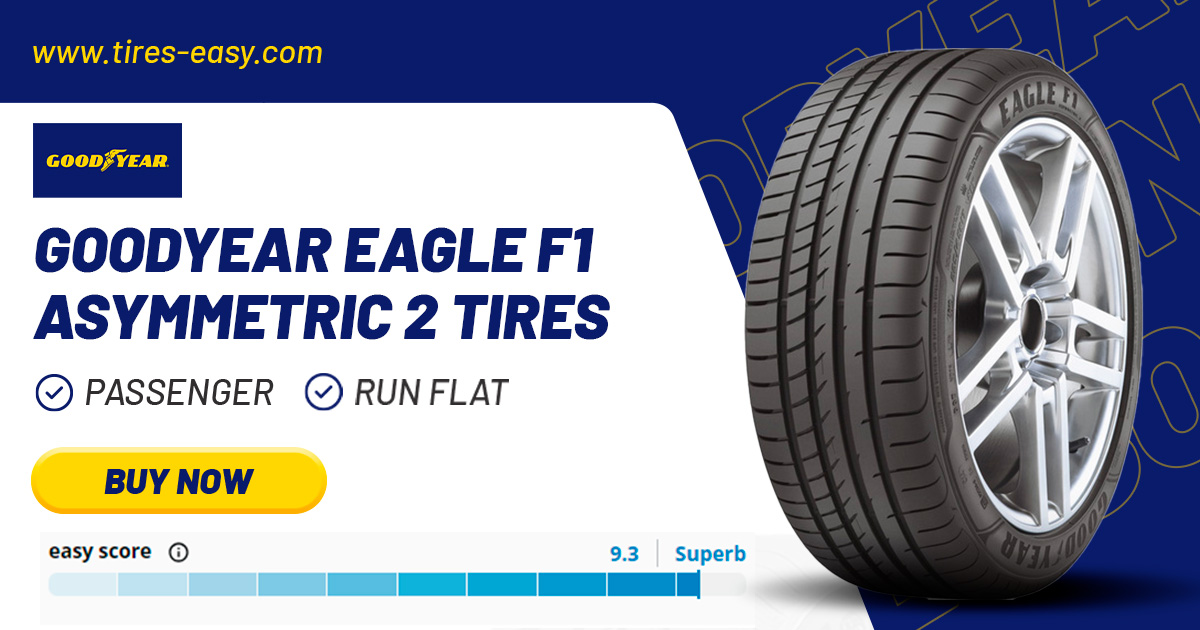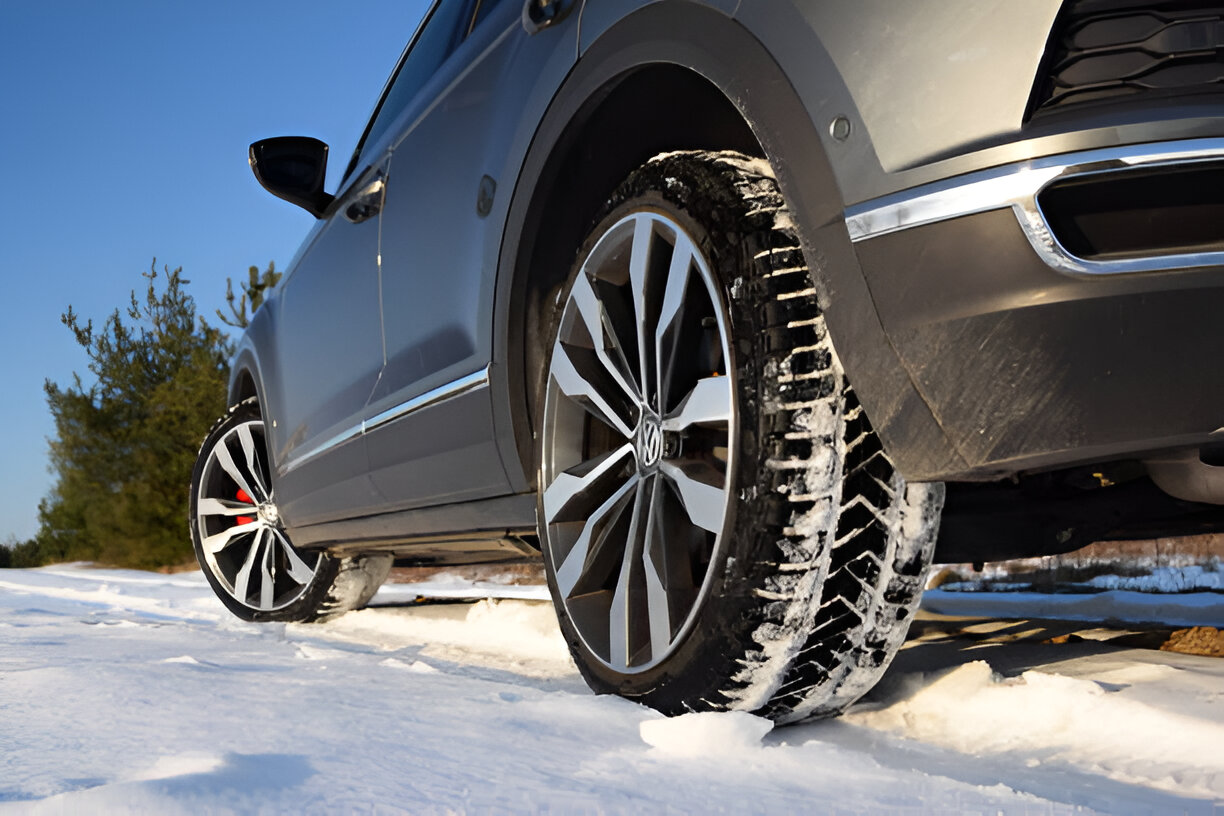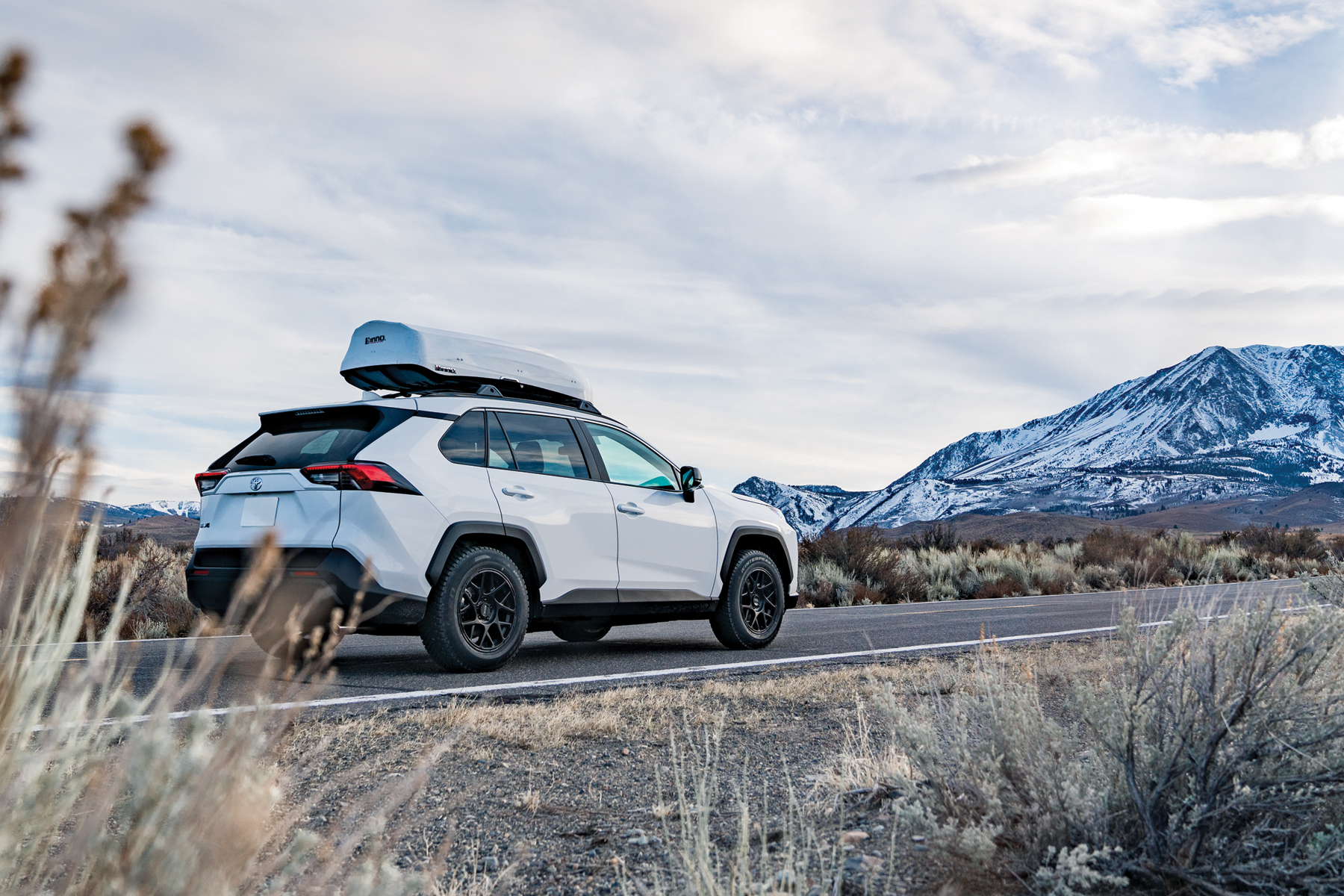Last Updated on August 2, 2024
The Versatility of All-Season Tires
All-season tires significantly advance tire technology, providing drivers with a flexible and practical answer for various driving conditions. Unlike season-specific tires, all-season tires are designed to function consistently across multiple weather situations, ranging from dry and warm to wet and mildly snowy. This adaptability makes them popular among drivers who encounter various weather situations but do not face severe winter weather.
Understanding All-Season Tires
All-season tires are designed to provide balanced performance in different driving conditions. They have a tread pattern and rubber compound designed to handle wet and dry roads well while providing some winter weather performance. The tread pattern typically has a moderate depth and separate grooves that aid in water evacuation, lowering the risk of hydroplaning.
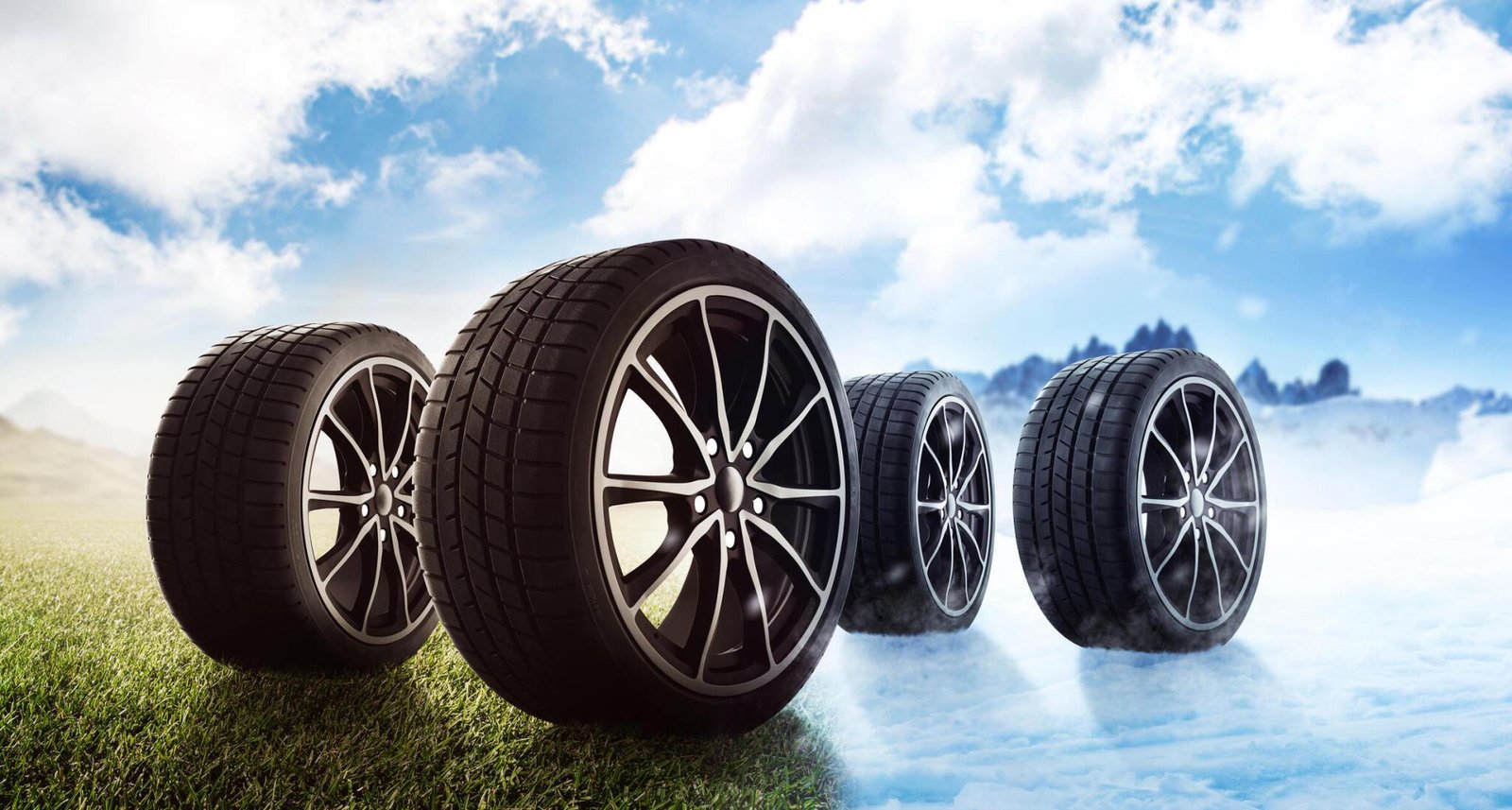
Performance in Various Conditions
All-season tires offer enough traction and handling in dry conditions, making them suitable for everyday driving. In wet conditions, their tread design helps to channel water away from the tire’s surface, maintaining grip. While they are not a replacement for winter tires in severe snow and ice, all-season tires can handle light to moderate snow, offering better winter performance than summer tires.
Advantages Over Season-Specific Tires
All-season tires offer an essential convenience benefit. They eliminate the need to change tires between seasons, saving time and labor. Furthermore, places with mild winters or variable weather patterns offer an excellent performance mix without requiring specialized winter tires.
The Evolution of Tire Technology
Tire technology has been a journey of innovation and adaptation. Early tires were simple, solid rubber strips fitted on wheels, offering minimal comfort or traction. The introduction of pneumatic (air-filled) tires in the late 19th century was a game-changer, significantly improving comfort and handling.
Radial Tire Revolution
The development of the radial tire in the 1940s marked another improvement. With their perpendicular steel belting, radial tires offered improved long life, better fuel efficiency, and enhanced safety over the older bias-ply tire design.
Advancements in Rubber Compounds
Improvements in rubber components have played a crucial role in tire development. Modern all-season tires use better synthetic rubber blends, which remain flexible in a broader range of temperatures, providing better grip and wear characteristics.
Integration of Technology
Recent improvements include the use of technology in tire design. Features like wear indicators, low rolling resistance for improved fuel efficiency, and advanced tread designs adapting to weather conditions are now standard in all-season tires.
Future Trends
Looking forward, tire technology continues with trends like environmentally friendly materials, airless tires, and innovative tire concepts that can adapt their characteristics dynamically or provide real-time data to drivers.
All-Season vs. Season-Specific Tires
The dispute over all-season and season-specific tires is essential in vehicle maintenance and safety. Understanding the difference between these tire types and their proper applications allows drivers to make informed judgments based on their regular driving events and climate.
Comparing All-Season and Summer Tires
Let us explore the different characteristics that differentiate all-season tires from summer tires. This delves into their respective design features, suitable conditions, and performance aspects, clarifying which type suits your driving needs.
All-Season Tires
All-season tires are designed to offer a balanced performance in various conditions, including dry roads and moderate winter conditions. They feature a tread pattern that provides a middle ground between the specialized treads of summer and winter tires. These tires have a rubber compound that stays flexible across a wide temperature range, ensuring decent grip throughout the year.
Summer Tires
On the other hand, summer tires are specifically designed for proper performance in warm weather. They have a softer rubber compound that provides excellent grip and handling on dry and wet roads during higher temperatures. The tread patterns on summer tires are less aggressive than those on winter tires and are designed to maximize contact with the road.
Key Differences
- Temperature Performance: Summer tires perform better in warm conditions and offer superior grip and handling, whereas all-season tires provide enough performance across a broader range of temperatures.
- Wet Conditions: Both types offer good performance in wet conditions, but the softer rubber of summer tires can provide a little edge in heavy rain.
- Winter Performance: All-season tires perform better than summer tires in colder conditions, especially in light snow or icy conditions.
The Difference Between All-Season and Winter Tires
This section highlights how each tire type, from tread patterns to rubber compositions, is engineered to perform under specific weather conditions, particularly in colder climates.
All-Season Tires
While all-season tires can handle light winter conditions, they are not designed for extreme cold or heavy snow. The tread and compound are compromises that give year-round usability but are less effective in harsh winter conditions.
Winter Tires
Winter tires are specifically built to endure cold temperatures and winter snowfall. They are constructed of a rubber structure that remains soft and provides grip at very low temperatures. The tire design is also more forceful, with deeper grooves and biting edges that improve snow and ice traction.
Key Differences
- Rubber Compound: Winter tires use a softer compound that remains flexible in extreme cold, unlike all-season tires, which can become less effective in severe cold.
- Tread Design: Winter tires have deeper treads and more biting edges for gripping snow and ice, which all-season tires lack.
- Performance in Snow and Ice: Winter tires perform better than all-season tires in heavy snow and icy conditions.
When to Choose All-Season Over Specialty Tires
This guidance helps you make an informed decision based on your driving environment and weather conditions.
Geographical and Climate Considerations
The choice between all-season and specialty tires largely depends on the climate and typical weather conditions where you live and drive. All-season tires are often sufficient in mild winters and no extreme summer heat.
Driving Habits and Conditions
All-season tires can be a practical and cost-effective choice if you do not face heavy snow or severe winter conditions and do not experience harsh summer temperatures. They provide a good balance of performance in most situations that an average driver would face.
Cost and Convenience
All-season tires can also be more cost-effective, as they eliminate the need for seasonal tire changes and the purchase and storage of a second set of tires.
Key Features of All-Season Tires
All-season tires are popular among drivers because they are helpful and can handle different road conditions throughout the year. Understanding the key features that make these tires the best for various environments is essential for drivers who choose safety and performance.
Tread Patterns and Durability
We will examine the critical aspects of tread patterns and durability in all-season tires and understand how these factors influence tire performance, longevity, and driving safety in various road conditions.
Tread Design
The tread pattern of all-season tires is an important feature that separates them from other tire types. These tires typically have a symmetrical tread pattern that provides balanced handling and a comfortable ride in various conditions. The tread blocks are designed with sipes (tiny slits) that improve traction in wet conditions and light snow.
Durability
All-season tires have a rubber compound that resists wear and tear at various temperatures. This durability ensures a longer lifespan than season-specific tires, which are proper for particular temperature ranges and may wear down faster when used outside those ranges.
Balanced Performance
The tread pattern and compound of all-season tires are intended to blend the gripping capabilities of summer tires with the snow traction of winter tires. While they may not perform well in harsh situations, they are acceptable for ordinary driving in most weather situations.
Wet and Dry Performance
Looking at the performance of all-season tires in both wet and dry conditions is essential. This section examines how these tires handle different terrains and weather situations, ensuring optimal safety and efficiency.
Wet Performance
The tread pattern of all-season tires plays a crucial role in wet conditions. The grooves in the tread help direct water away from the tire’s contact area, lowering the chance of hydroplaning. This construction guarantees that the tire has a good grip even in rainy conditions.
Dry Performance
On dry roads, all-season tires offer stable handling and good braking performance. While less aggressive than summer tires, the tread design still provides adequate traction for most driving situations, including across states and urban driving.
Handling Light Snow and Ice
Learn about the abilities of all-season tires in dealing with light snow and icy conditions. While not a replacement for winter tires, their performance in mild winter situations is crucial for many drivers.
Light Snow Performance
All-season tires are equipped to handle light to moderate snow. The sipes in the tread blocks provide additional biting edges that grip the road surface in snowy conditions. However, they are not a replacement for winter tires in heavy snow or harsh winter conditions.
Ice Performance
While all-season tires can manage light ice, their performance is limited compared to dedicated winter tires. The rubber compound and tread design suit ice-covered roads with icy and slick surfaces, and winter tires with deeper treads and softer compounds are more suitable for snowy conditions.
Economic Benefits of Choosing All-Season Tires
Opting for all-season tires can offer many economic advantages for vehicle owners. These benefits include cost savings over time and the convenience of not having to maintain multiple sets of tires. Let’s explore these economic benefits in detail.
Cost-Effectiveness Over Time
We will look into the long-term economic benefits of buying all-season tires. This includes exploring the cost savings over time and considering factors such as tire longevity and reduced need for seasonal changes.
Initial Investment and Replacement Costs
Due to their versatility, all-season tires can be a cost-effective choice. The initial cost of purchasing all-season tires may be on par with seasonal tires, but the savings become more evident over time. Since these tires are designed to perform adequately in various conditions, they remove the need to buy separate summer and winter tires.
Savings on Tire Change Services
Additionally, using all-season tires can reduce the expenses associated with seasonal tire changes. Typically, vehicle owners who use winter and summer tires incur costs twice a year to switch tires. All-season tires used throughout the year remove these additional service charges.
Fuel Efficiency
All-season tires are also intended to be fuel-efficient. Their tread designs and rubber compounds are optimized to reduce rolling resistance, which can lead to higher fuel economy than specialty seasonal tires in certain conditions.
Reducing the Need for Multiple Sets of Tires
Let’s explore how choosing all-season tires can reduce the need to own multiple sets for different seasons, simplify maintenance and storage, and save money.
Storage and Maintenance Costs
Owning multiple tires (winter and summer) requires additional storage space and maintenance. This can be a challenge, especially for those living in urban areas with limited storage options. All-season tires remove the need for extra storage space and the associated costs.
Long-Term Savings
Vehicle owners can realize significant long-term savings by avoiding the purchase of multiple tire sets. Investing in one set of all-season tires instead of two sets of seasonal tires can reduce considerable costs over a vehicle’s lifespan.
Longevity and Wear
Investigate the longevity and wear characteristics of all-season tires. Understanding these aspects is critical to maximizing tire life and ensuring consistent performance throughout their usage.
Durability
All-season tires are constructed to be durable and long-lasting. Their tread life generally exceeds highly specialized tires, which may wear down faster due to their specific compound and tread design. This extended tread life means fewer replacements over time, translating to cost savings.
Even Wear
The tread pattern on all-season tires is designed to wear evenly under usual driving conditions. This even wear helps prolong the tires’ life, whereas specialized tires might experience uneven wear if used outside their optimal conditions, leading to earlier replacements.
Warranty and Value
Many all-season tires come with extensive warranties that check their durability and longevity. This warranty can add value, offering peace of mind and better savings if premature wear occurs.
All-season tires for Different Vehicle Types
The selection of your all-season depends on the type of vehicle. Whether it’s a passenger car, SUV, truck, or performance vehicle, each category has specific needs and requirements that influence the choice of tires. This article explores the best all-season tire options for these different vehicle types.
Best All-Season Tires for Passenger Cars
Discover the top all-season tire choices for passenger cars, tailored to enhance your driving experience. This section highlights tires that perfectly balance performance, safety, and durability for everyday commuting and long journeys.
Passenger Car Requirements
Passenger cars, including sedans and hatchbacks, generally require tires that balance fuel efficiency, comfort, and all-weather grip. These vehicles are primarily used for commuting and daily driving in urban or suburban settings.
Recommended Tires
- Michelin Defender T-H is known for its long tread life and excellent all-weather performance. It’s a great choice for those who prioritize durability and fuel efficiency.
- Goodyear Assurance All-Season: It offers excellent wet and dry traction and can handle light snow, making it the proper option for different weather conditions.
- Continental TrueContact Tour: This tire stands out for its comfort, fuel efficiency, and reliability in wet and dry conditions.
Optimal Choices for SUVs and Trucks
Learn about the best all-season tires specifically designed for SUVs and trucks. These selections focus on handling heavier loads, providing better traction in varied terrains, and ensuring a smooth ride for larger vehicles.
SUV and Truck Requirements
SUVs and trucks often require tires that can handle heavier loads and provide good traction in various terrains, including off-road conditions for some models. Durability and tread life are also important due to the larger vehicle size and potential for towing or hauling.
Recommended Tires
- Pirelli Scorpion Verde All Season: This is a great SUV choice. It offers a comfortable ride, good handling, and traction in various weather conditions.
- Michelin LTX M/S2: It is ideal for trucks, especially those needing a tire to handle highway driving and moderate off-road conditions.
- Bridgestone Dueler H/L Alenza Plus: This tire is well-suited for SUVs and light trucks because of its long tread life and quiet ride.
Performance Vehicles and All-Season Tires
This guide showcases tires that offer superior handling and grip without compromising versatility.
Performance Vehicle Requirements
These vehicles frequently feature more powerful engines and sophisticated suspension systems, demanding tires that can keep up with their performance potential.
Recommended Tires
- Michelin Pilot Sport All Season 4: It offers exceptional grip and handling for high-performance vehicles, making it a top choice for drivers who want all-season versatility without reducing performance.
- Continental ExtremeContact DWS 06: This tire is known for its superb handling in dry and wet conditions and respectable snow performance.
- Goodyear Eagle F1 Asymmetric All-Season: A well-rounded tire that balances performance, comfort, and all-weather capability.
Safety Considerations with All-Season Tires
Many drivers prefer all-season tires because they are versatile. However, understanding their safety is critical for optimal performance and road safety. This article discusses how all-season tires improve safety, their limitations in extreme weather, and the need for routine maintenance and upkeep.
How All-Season Tires Enhance Safety
This section emphasizes how these tires contribute to overall road safety, from improved traction on wet and dry surfaces to reliable performance in mild winter conditions.
Traction in Various Conditions
One of the primary safety features of all-season tires is their ability to provide adequate traction in various road conditions. All-season tires are designed to maintain a good grip, whether the road is dry, wet, or lightly covered in snow. This is mainly due to their tread patterns and rubber compounds, suitable for various temperatures and conditions.
Reduced Risk of Hydroplaning
All-season tires are designed with tread patterns that help channel water away from the tire’s surface, reducing the risk of hydroplaning in wet conditions. This feature is essential for maintaining vehicle control during heavy rains.
Stability and Handling
These tires also contribute to stable handling and cornering capabilities in diverse weather conditions. The tread design and the tire’s sidewall stiffness are balanced to offer a comfortable driving experience without compromising safety.
Limitations in Extreme Conditions
This insight helps drivers understand where all-season tires excel and where they may fall short, especially in heavy snow or freezing temperatures.
Winter Conditions
While all-season tires perform adequately in light snow, they are not designed for extreme winter conditions. Their performance can diminish significantly in heavy snow, ice, or freezing temperatures. Unlike dedicated winter tires, the rubber compound and tread pattern in all-season tires are not optimized for gripping in deep snow or on ice.
High-Performance Driving
All-season tires may offer a different level of grip and responsiveness than is needed for vehicles driven in a high-performance manner, such as sports cars. In these cases, specialized performance tires may be more appropriate.
Regular Maintenance and Care
Emphasize the importance of regular maintenance and care for all-season tires to ensure optimal performance and longevity. This includes tips on tire inspections, pressure checks, and rotation schedules.
Regular Inspections
All-season tires must be inspected regularly for signs of wear and tear to ensure safety. Check for cracks, cuts, bulges, or uneven wear patterns, as these can compromise the tire’s performance and safety.
Proper Inflation
Maintaining the correct tire pressure is essential for the safety and longevity of all-season tires. Underinflated or overinflated tires can lead to decreased traction, increased wear, and a higher risk of tire failure.
Rotation Schedule
Regular tire rotations are essential to ensure even wear on all-season tires. This not only extends the life of the tires but also maintains their safety and performance. Typically, tires should be rotated every 5,000 to 8,000 miles.
Alignment Checks
Regularly checking and adjusting your vehicle’s alignment can prevent uneven tire wear and ensure the car handles correctly, which is crucial for safety.
Choosing the Right All-Season Tires for Your Needs
Selecting the appropriate all-season tires for your vehicle is a crucial decision that can significantly impact driving performance, safety, and comfort. To make an informed choice, consider your driving habits and the prevailing driving conditions you face, explore the top brands and models available, and seek advice from tire professionals.
Assessing Your Driving Habits and Conditions
This section guides readers through evaluating their driving habits and typical road conditions to choose the most suitable all-season tires. It helps tailor tire choices to individual needs and driving environments.
Understanding Your Needs
Begin by evaluating your typical driving patterns. Do you mainly drive in urban areas, or are your journeys more highway-focused? Consider the average distances you travel and the specific loads your vehicle carries.
Climate and Road Conditions
Reflect on your area’s climate. While all-season tires are designed to handle various conditions, if you live in a region with severe winters or heavy rainfall, you might need tires with specific features, like enhanced traction for wet roads or a better grip for light snow.
Driving Style
Consider your driving style. If you prefer a comfortable, smooth ride, look for tires with good shock-absorbing capabilities and noise reduction. Tires with better handling and grip might be more appropriate for a more spirited driving style.
Top Brands and Models in the Market
Here, we will highlight the leading brands and models of all-season tires. Focusing on quality, performance, and customer reviews, this part aids in making an informed tire purchase decision.
Renowned Brands
There are so many reputable tire manufacturers, and they are known for their high-quality all-season tires. Brands like Michelin, Goodyear, Bridgestone, and Continental often lead the market in terms of innovation, performance, and reliability.
Popular Models
We showcase the Michelin Defender T+H, renowned for its longevity and all-weather capabilities, making it the right choice for those seeking durability. We also feature the Goodyear Assurance WeatherReady, known for its dependable traction in various weather conditions. The Continental TrueContact Tour also takes the spotlight for its fuel efficiency and well-rounded performance on wet and dry roads. When choosing the right tires, this blog emphasizes the importance of consumer reviews and professional testing to help drivers make informed decisions based on real-world experiences and expert evaluations.
- Michelin Defender T+H: These tires are known for their long tread life and excellent all-weather performance, making them suitable for drivers looking for durability.
- Goodyear Assurance WeatherReady: They offer reliable traction in various conditions, including wet roads and light snow.
- Continental TrueContact Tour: This tire is celebrated for its fuel efficiency and balanced performance in dry and wet conditions.
When considering brands and models, check for reviews and ratings from other consumers and professional testing organizations. This can provide valuable insights into the tires’ real-world performance.
Consulting with Tire Professionals
It is essential to seek expert advice when selecting all-season tires. Professional insights can provide personalized recommendations and ensure you choose the best tires for your vehicle and driving conditions.
Expert Advice
Speaking with a tire professional can provide unique suggestions based on your vehicle model, driving patterns, and local road conditions. Tire specialists can provide insight into the latest tire technology and how they may benefit you.
Installation and Maintenance
Professional tire services can also ensure that your tires are correctly installed, balanced, and aligned, which is necessary for their safety and longevity. They can also advise on a maintenance schedule for tire rotations and pressure checks.
Warranty and After-Sales Service
A good warranty can offer peace of mind, while reliable after-sales service ensures you can get professional help whenever needed.
Conclusion & Recommendations
After exploring the various aspects of all-season tires, it’s clear that they offer a unique blend of versatility, safety, and economic benefits. As we conclude this comprehensive guide, let’s recap the advantages of all-season tires and look at the future trends in tire technology.
Recap of Benefits
Here is a summary of the advantages of buying all-season tires. From versatility across various road conditions to cost-effectiveness and safety enhancements, this recap consolidates the critical takeaways about all-season tires.
Versatility Across Conditions
All-season tires stand out for their ability to handle various driving conditions. They provide dependable performance on dry and wet roads and moderate snow and ice, making them a popular driver choice.
Economic Efficiency
All-season tires are particularly cost-effective. Their endurance and capacity to eliminate the need for seasonal tire changes result in significant long-term cost and time savings.
Safety Features
Safety is essential, and all-season tires are developed with that in mind. Their tread designs and rubber formulations are designed to provide steady handling while lowering the risk of hydroplaning in wet weather.
Future Trends in Tire Technology
Look ahead at the new changes in tire technology. There are upcoming innovations in all-season tires, including materials, tread design, and intelligent tire features that promise to change the driving experience.
Eco-Friendly Materials
The tire industry is increasingly focusing on sustainability. All-season tires will likely use more eco-friendly materials, reducing the environmental impact without compromising performance.
Advanced Tread Technology:
We expect to see more advanced tread designs that adapt to changing road conditions, offering even better grip and handling in various weather conditions.
Smart Tire Technologies
The use of sensors and intelligent technologies in tires is on the rise. These advancements will allow real-time monitoring of tire health, pressure, and temperature, enhancing safety and efficiency.
Why choose Tires Easy?
Understanding the all-season tire advantage, it’s time to make the right choice for your vehicle. Tires Easy offers a wide selection of top-quality all-season tires from renowned brands. Our collection caters to various cars, ensuring you find the perfect match for your driving needs.
Explore Our Range
Discover our extensive range of all-season tires featuring the latest models with advanced technology. Whether you’re looking for durability, performance, or fuel efficiency, we have suitable options.
Expert Advice
Need help deciding which tire to choose? Our team of tire experts is here to help. We can guide you based on your vehicle type, driving habits, and local weather conditions.
Easy Purchase and Installation:
Purchasing tires from Tires Easy is hassle-free. Select your tires, and we’ll handle the rest. We also offer convenient installation services to ensure your new tires are perfectly fitted to your vehicle.
Click Here to Buy Tires Now: [Explore Our Collection]
Embrace the all-season tire advantage and ensure a safe, efficient, and enjoyable driving experience. Visit Tires Easy today to find the perfect all-season tires for your vehicle.
FAQs
Why do people use all-season tires?
People use all-season tires for their durability and convenience. They are designed to provide enough performance in different conditions, including dry, wet, and mildly snowy roads, making them a practical choice for drivers in regions with moderate weather conditions.
Are all-season tires good for driving?
All-season tires are good for driving in most conditions because they balance wet and dry performance and provide some winter weather capability. They are ideal for drivers who experience various weather conditions but avoid severe snow and ice.
What are the advantages of all-season tires?
All-season tires offer year-round versatility, reducing the need to change tires with the seasons and providing a balance of performance in wet and dry conditions. They also tend to last longer than season-specific tires.
Why are performance all-season tires sometimes not the best option?
Extreme weather conditions may make performance all-season tires an unsuitable choice. While they provide more excellent handling and grip in warmer weather, they may fall short in heavy snow or extreme cold, where specialized winter tires would be more effective.
What purpose do all-season tires serve?
All-season tires are designed to function well in various conditions, including dry roads, rain, and light snow. They are a cross between summer and winter tires, designed to give adequate performance throughout the year in temperate conditions.
Which is better: summer or all-season?
Your location’s climate and driving circumstances determine the choice between summer and all-season tires. Summer tires excel in warm and rainy circumstances, whereas all-season tires work well in a broader range of situations, including moderate cold weather.
Does all-season work in the winter?
All-season tires perform well in mild winter conditions but are unsuitable for harsh winter weather. They can withstand moderate snow and somewhat lower temperatures, but winter tires are advised for heavy snow, ice, and freezing weather.
How can you determine if a tire is all-season?
To identify an all-season tire, check for the “M+S” (Mud and Snow) symbol or the “All-Season” mark on the sidewall. The tread pattern is often an intermediate between summer and winter tire treads.
-
Writer





